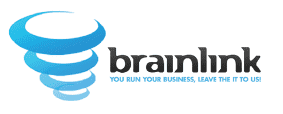Rosser Reeves coined the phrase “unique selling point” back in the 1940s when researching why some advertising campaigns worked better than others. Since then it has been used by various marketers and has morphed into “unique selling proposition,” which is now more commonly used. Ogilvy said you need a “big idea.” Trout says you need to “differentiate or die.” Others talk about your value proposition or competitive advantage.
Regardless of how you phrase it, the meaning is the same: What’s the single most compelling reason why a prospect should buy from YOU over all the other options, vendors and choices they have? The key word in unique selling proposition is, of course, unique. The answer should be unique to you and dependent on your company’s abilities, systems, niche and offering. Here are some guidelines that we’ve used:
First, your services have to be FOR somebody specifically, not the masses. When I ask many local companies “What’s your target audience,” I’ll often hear, “Anyone that lives in the such‐and‐such area.” Bull. A “family of 4” is different than a 5‐person company and is an entirely different animal than a 100‐person company. Totally different situations, needs, budgets, etc. You can’t niche the phone book. That doesn’t mean you must have a particular vertical to be successful. You can certainly have a variety of people as clients; but I would urge you to find the commonality of those clients be it size, income, pace of growth, consumer/business, etc.
Second, whatever makes you unique must be RELEVANT to your clients— something exciting, engaging or of particular value to the person paying you money. That means you need to know what your competition is offering and doing and find that point of difference that matters the most to your clients and MASTER it. For my company, our USP is “You run your business and leave the IT to US” and the best clients that we can service are companies that “Law firms, Insurance Brokerages, Hedge Funds, Architects, Construction Firms and Property Management firms with 5‐100 employees in Manhattan”. Now that doesn’t mean that we aren’t able to support other companies that are outside of this definition, but we are able to define who we work best with, and that’s important. It’s important that our USP is true, is unique to us (therefore cannot be copied) and is relevant to the people we want as clients.
If you’re struggling to figure out what your USP is or what it SHOULD BE, find out what the top pet peeves are for prospects in your niche regarding IT. What on an everyday basis are they trying to get rid of? Once you know that, make it your personal mission to eliminate those irritants or solve those problems better than anyone else. Then you can back your claims up with facts and staitstics, client case studies and guarantees. That’s how we started out, and it’s working pretty well for us so far. This process is really never done, but we’re confident that for now we know who we serve and what we do best to serve them.
